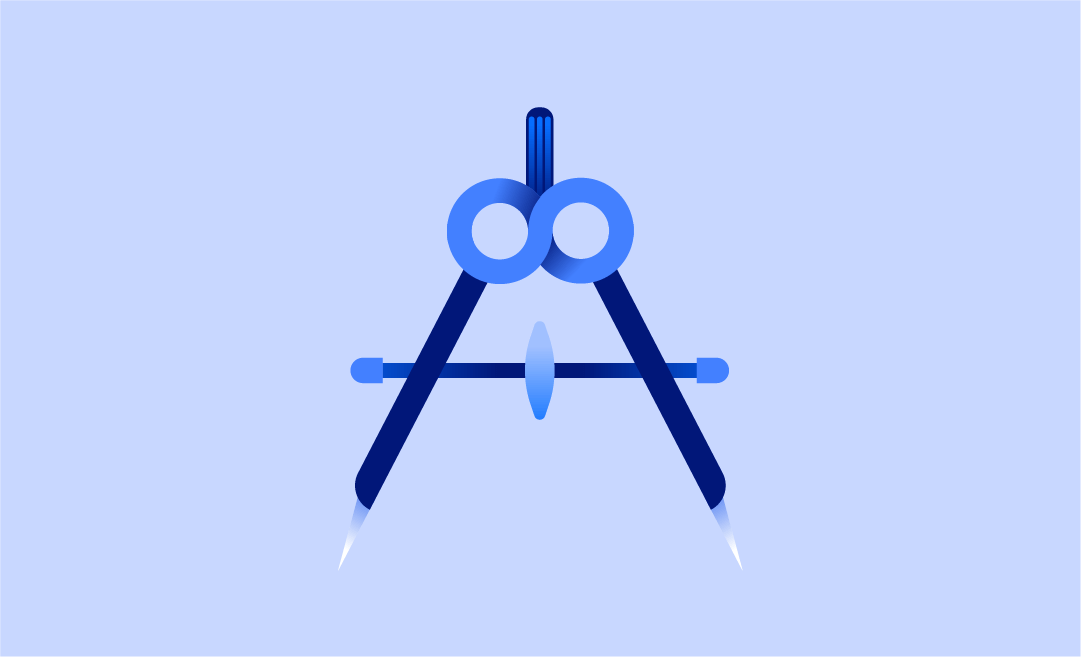Demystifying the DevOps Architect Responsibilities: Key Roles and Career Path
The author of this article is tech expert Pieter Murphy.

At the enterprise level, planning, designing, and reviewing the various stages of IT development can be demanding. DevOps, as a field, is concerned with bringing together the development and operations arms of software development.
The goal is to accelerate software delivery through collaboration, automation, fast feedback, and iterative development. A DevOps architect takes a unique role in the ecosystem; that of a conductor who ensures the processes run smoothly and efficiently.
In this article, we look at DevOps architect roles and responsibilities to offer insight into what you need to know about how to become a DevOps architect.
Why Do Companies Employ DevOps Architects?
Companies employ the services of DevOps architects to design and implement the software infrastructure that facilitates the collaboration and integration of development and operations teams.
Companies must look for senior development and operations experts to create platforms and frameworks that enable consistent, verifiable, and automatic application and infrastructure management across different environments.
Enterprises constantly want to improve software delivery's speed, quality, and reliability, mitigate risk and reduce costs. They come in handy with an overarching understanding of how their culture works and how to best implement it for a specific company’s needs.
To understand the role better, let’s define it and learn what DevOps architect responsibilities include.
DevOps Architect Roles Description And What They Are Responsible For?
1. Analysis, Execution, And Streamlining Of Development and Operations Practices
A DevOps architect is often tasked with evaluating a company's current state of software development process and operations. The analysis identifies the gaps and challenges so he can propose solutions to fix and optimize the processes.
The platform architect should also implement and track development and operations practices, including continuous delivery, integration, testing, monitoring, and feedback.
2. Automating Processes
While this may sound like a matter of finding tools to automate everything that can be automated, it goes deeper than that when you’re the DevOps architect. It also means looking at processes that don’t need automation, integrating tools that aren’t disruptive to the overall model, and selecting the right tools for the job.
Some processes you can automate include code analysis, testing, deployment, configuration, orchestration, scaling, security, and performance. The most well-regarded automation tools in the industry at the time of writing this include Chef, Puppet, Jenkins, Docker, Ansible, Kubernetes, etc.
3. Facilitating Development Process And Operations
A key DevOps architect responsibility calls for facilitating communication and collaboration between the development and operations teams and other stakeholders like product owners, quality assurance engineers, business analysts, etc.
The architect ensures that the development process and operations are aligned with the business requirements and objectives.
4. Creating A DevOps Channel Across The Business/Organization
An architect must implement a system for frictionlessly sharing feedback, information, knowledge, and best practices among different teams and departments.
Architect DevOps uses the system to know where to improve and help end users know when to expect changes and how to make the most of the software deliveries.
He also promotes a culture of experimentation, learning, improvement, and innovation within the organization to continuously keep it competitive and optimized for peak operational efficiency.
5. Setting Up A Continuous Build Environment For Faster Development And Deployment
A DevOps expert should create a continuous build environment that allows developers to build, test, and deploy their code quickly and frequently. They also ensure that the code is integrated regularly and verified automatically with tools like Git, Gradle, Maven, etc.
6. Managing And Reviewing Technical Operations
The DevOps architect role involves managing and reviewing the technical operations involved in the software delivery pipeline.
That includes managing the infrastructure resources, including networks, servers, storage devices, etc., reviewing the performance metrics (availability, reliability, latency, etc.), and ensuring that service level agreements are met.
For the most part, the DevOps architects’ job description gives you oversight over all the processes involved in your development and operations environments.

Tools And Skills For DevOps Architects
It is worth looking at the tools and skills you may be expected to use to give more insight into what you can expect to do to boost your DevOps architect profile:
Tools
-
Cloud Platforms
These platforms help DevOps architects facilitate the delivery of services and solutions. They include storage, networking, computing, security, and more. Some of the most well-known examples of cloud platforms include AWS, Azure, and Google Cloud.
-
CI/CD
Continuous integration and development tools automate the process of building, testing, and deploying applications. They support continuous integration and delivery practices and integrate with various tools and plugins for platform engineers. Some CI/CD tools examples include GitHub Actions, Jenkins, and GitLab CI.
-
IaC (Infrastructure-as-Code) Tools
DevOps architects use IaC tools to automate the configuration management of applications and infrastructure. They use code to define the system's desired state and apply it to the target environment. Some of the most used examples include Ansible, Terraform, and CloudFormation.
-
Containers and Container Orchestration Tools
These are tools used to create and run apps using containers, which are lightweight and isolated environments that contain the application’s code and dependencies. They also manage the deployment, networking, and scaling of containers across more than one host.
Some of the popular container and container orchestration tools include Docker and Kubernetes.
-
Version Control Tools
Versioning tools are used to manage the source code of applications. They support a distributed version control system (DVCS) that allows multiple developers to work on the same code base without conflicts.
They also provide features that include branching, merging, pull requests, and workflows. Some of the tools used to control versions include Git and GitHub.
-
Monitoring Tools
These tools are used to collect and analyze metrics from apps and infrastructure. They give platform engineers and everyone involved visibility into the performance and health of the system, as well as querying, alerting, dashboarding, and visualization functions.
Some of the tools used for monitoring include Datadog and Prometheus.
-
Programming Languages
These are the languages used to enable platform engineers to create and maintain scripts and tools for DevOps. Each language has its own data structure, syntax, algorithms, and libraries that suit or meet different goals and needs.
Read more about the tools and IT language of DevOps engineers on the blog.

Skills
Your DevOps architect skill set is expected to include, but is not limited to, the following:
-
Automation knowledge — The platform architect must know how to select and use the proper tools to automate processes in development, operations, and the bridge between the two.
-
Programming languages — You are expected to know the relevant programming languages and when to use which language. That means being familiar with the chosen language's syntax, data structure, libraries, and algorithms.
-
Versioning — Platform architects must thoroughly know GIT, the distributed version control system that enables source code management.
-
The Linux operating system — As the most prevalent operating system used on most servers, platform architects must be proficient in bash scripting, networking, cronjobs, SSH, file search, file system, storage, etc.
-
Leadership skills — As implied by the DevOps architect definition, you must liaise with and work directly with many people in a DevOps environment. As such, it is helpful to have good communication skills, which are imperative to lead and inspire your teams to work together.
-
Supervising technical operations — Given the technical-heavy nature of everything in a DevOps system, the architect must competently supervise any technical operations to ensure they are done right from the start.
-
Implementation — the architect should be able to implement the development system in an organization, including the tenets it espouses, such as automation, continuous implementation and delivery, collaboration, accelerated development, and more.
-
Helping provide solutions — As an architect, you need to be able to step in when problems arise to help guide team leaders and developers toward finding the best and most efficient solutions.
Given the broad nature of the job description, there are more tools and skills to consider, necessitating continuous self-improvement and staying up to date with the technology and industry. On the blog you can read about useful books for a novice DevOps engineer. However, they can be helpful for more experienced specialists as well.
Becoming A DevOps Architect Is Challenging But Achievable
In 2023 and going forward, the enterprise world has firmly settled on the agile development model, which means DevOps is not going anywhere.
The evolution has been driven by the rise of cloud computing and cloud-native technologies that enable development and operations practices, the need for digital transformation and innovation in the post-pandemic era, the shortage of skilled and experienced platform engineers in the markets, and more.
With this DevOps architect role description, you can start charting your path up to this senior position, with its added responsibilities and salary and perks to match.
FAQs
Are DevOps Architects in Demand?
Yes, DevOps architects are in demand, given that there is a shortage in DevOps in general. The amount of knowledge required to thrive in this environment means that only a few make it to senior roles.
What Makes a Good DevOps Architect?
A good platform architect has overarching knowledge of DevOps, how to implement it, and how to coordinate development and operations for efficient output.
Can a DevOps Engineer Become an Architect?
Yes, a platform engineer can become an architect by expanding their knowledge of the DevOps environment. That takes some work, too, as it would involve zooming out from the engineering aspect, including everything involved in DevOps practices.
What Is the Difference Between a DevOps Engineer and a DevOps Architect?
The DevOps engineer works on the development and operations of software applications, while the architect designs and implements IT solutions that align with business goals.
What Are the Skills Required for DevOps Architects?
DevOps architects need comprehensive knowledge and skills, including leadership, analysis, planning, execution, and optimizing a business’s IT side to align with business goals.
Is DevOps Architect and Cloud Architect the Same?
They aren’t the same, as a cloud architect is tasked with designing the infrastructure of cloud-based servers and systems by keeping customer or business requirements in mind. The DevOps architect focuses on the business side of implementation, while the cloud architect focuses on the technical side.

.png)
